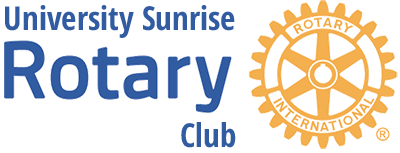
Program Summary Notes by Paul Weibel:
Nicole Thomas-Kennedy moved to Seattle twenty-five years ago and spent years serving and bartending downtown Seattle. She found both community and a love of school at Seattle Central Community College. She went on to receive a bachelors in Anthropology from UW, and a law degree from Seattle University. Nicole spent four years in public defense before opening her own firm, focused on low or pro bono criminal and eviction defense. She met her partner 15 years ago and they have one amazing child.
Nicole has been the attorney of record on over 200 civil cases, and 400 criminal cases. She has never lost a trial, which she attributes to the absurdity of the types of cases prosecutors filed as much as her own legal prowess. She saw first-hand how the destabilizing effects of overly aggressive prosecutions reverberated through their lives, their families, and their communities. She saw poor people not just arrested but prosecuted for stealing socks in the winter or food when they were hungry. Over and over again, the current City Attorney’s Office pursues prosecutions that are ineffective, damaging, and costly — both inflicting hardship on our most oppressed communities and wasting millions of dollars that could be spent on community-led, evidence-based programming.
Nicole believes that her plan will make us safer. Her experiences as a youth led her to the conclusion that compassion and advocacy puts people on the right path. The old way expands prisons. The Jump Start Tax and Fair Chance Housing help. She will prosecute where it makes us safer.
Tweets – done in 2020. She was in the streets, saw the injuries and violence and visited the jails. She had to buy her daughter a gas mask. This was all very upsetting to her and at the time Nicole was just another unknown citizen. As city attorney she would not do those tweets. The mailings opposing her are by people opposing the Jump Start tax. She is still outraged by what happened. There was no conciliatory attitude by the police. The city attorney’s office should be separate from the police. We don’t need a deferential attitude.
Drugs/Meth – incarnation does not work for addiction and the War on Drugs doesn’t work. Addiction needs to be treated as a health problem. The city attorney’s office can help mitigate harm to the community. We need an expansion of treatment facilities. It is very hard to get into these facilities. Treatment needs to be made available when the addict is ready for treatment. Forced treatment doesn’t work. A Housing First model is needed – addicts can’t get clean on the streets.
3rd and Pine – Nicole used to work at the Market and lived at 6th & Pine. In addition to the above, we need Community Mental Health. It is impossible to get into treatment before crisis. Supportive housing and case management are less expensive and more effective. Shoplifting is mostly by people steeling to survive. That does not mean that if you are poor that’s okay to steal but prosecution is expensive and it is not effective. Some shoplifting is a felony and not under the city attorney.
Prosecutors have discretion on what they charge. There are very few crimes that Nicole would not charge. She will not prosecute for drug possession of prostitution. Not prosecuting does not mean doing nothing but we are prosecuting the poorest people. 90% of the defendants qualify for public defense. CHOOSE 180 eliminates recidivism and is less expensive.
The police have discretion. 50 percent of their time is spent on non-criminal matters. So, take stuff off their plate. We don’t need a police response for everything. The problem is partly to do with their contract. There is no accountability. Minorities are who end up in court. There is no benefit in prosecuting for prosecutions sake. Jail doesn’t work.
Civil actions – city attorney directs city litigation. They defend all city laws and can settle all litigation. People who create large scale problems are who she will go after. She is largely satisfied with the civil actions at the city attorney’s office. The city attorney has a lot of power over legislation. Her office will cooperate with other jurisdictions – particularly on affordable housing.
Housing – supports the Jump Start Tax. The middle class currently carries most of the load. Tenant protection is important. The current council is committed to solving the problem. The city attorney increases homelessness when it prosecutes. People lose jobs and housing when they are in jail.
Homelessness – resourcing people who are vulnerable. Work with city council to craft legislation. Landlord abuse is by the big corporate landlords – not the mom & pop landlords. What happens to the homeless affects us all.
Victim compensation fund – would give victims instant repair. Run by Human Services Department. Now victims have nothing. Prosecution does not result in restitution. Funding would come out of the city attorney’s budget. It would be a small part of the budget. $77 million was spent last year on prosecuting misdemeanors.
Law enforcement needs more accountability. City attorney’s office needs more transparency. Police need to spend less time on non-criminal matters.

















